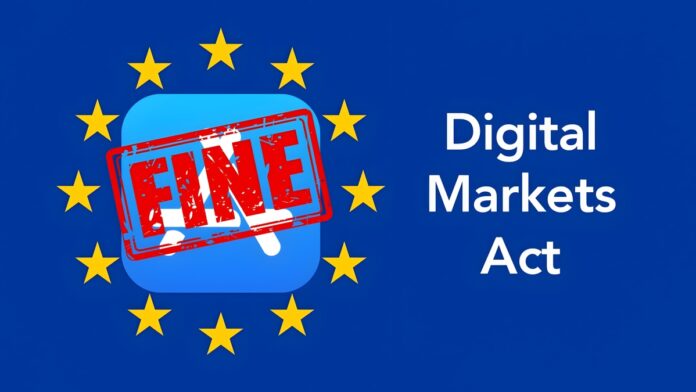In a landmark decision, the European Commission has imposed a staggering €1.84 billion ($2 billion) fine on tech giant Apple, marking the company’s first-ever European Union antitrust penalty. The fine is the result of a long-standing investigation triggered by a complaint from music streaming service Spotify, dating back to 2019, concerning Apple’s App Store practices.
Background: The Spotify Complaint
The crux of Spotify’s complaint revolved around Apple’s alleged anti-competitive practices within the App Store, commonly referred to as the “Apple Tax.” This term encompasses the 30 percent commission imposed on developers and restrictive rules limiting communication with customers and marketing strategies. Spotify argued that these practices hindered fair competition and consumer choice, leading to the initiation of the EU investigation in 2020.
EU Commission Findings and Fines
The European Commission, after a thorough investigation, concluded that Apple abused its dominant position in the market for the distribution of music streaming apps through the App Store. Specifically, the EU Commission found that Apple prohibited music streaming app developers from fully informing iOS users about alternative and cheaper subscription services available outside the App Store. Such restrictions were deemed illegal under EU antitrust rules.
Margrethe Vestager, the Executive Vice-President in charge of competition policy, stated that “For a decade, Apple abused its dominant position… by restricting developers from informing consumers about alternative, cheaper music services available outside of the Apple ecosystem.” The fine was determined based on the duration and gravity of the infringement, Apple’s total turnover, and market capitalization.
Also See: Spotify Music Video Rolling Out
Apple’s Response and Concessions
Apple, in response to the fine, criticized the decision and expressed its intention to challenge it in court. The company argued that the Commission failed to uncover credible evidence of consumer harm and emphasized the thriving and competitive nature of the market. Despite Apple’s contention, the EU Commission asserted that the restrictions imposed by Apple constituted unfair trading conditions.
Over the course of the investigation, Apple made some concessions, allowing developers to advertise payment methods outside the iOS app and link out to their own sites. However, these changes were criticized by Spotify and others as insufficient and merely for show.
Also See: Apple iPhone 16: Features, Specifications
EU’s Digital Markets Act and Apple’s Overhaul
The timing of the EU’s decision is noteworthy as Apple is gearing up for a significant overhaul of its app distribution rules in compliance with the EU’s Digital Markets Act (DMA), effective from March 7th. The DMA mandates the inclusion of third-party app marketplaces on the iPhone, but critics argue that Apple’s proposed changes, including commission fees and other fees for developers, are unworkable and could stifle businesses.
Broader Implications and Future Outlook
The EU’s decision and the subsequent fine set a precedent for tech giants operating within the European market, emphasizing the importance of fair competition and consumer choice. The outcome of this case could have far-reaching implications for other ongoing antitrust investigations, both in the EU and globally, as regulators scrutinize the practices of major tech companies.
As Apple prepares to navigate the changing landscape of app distribution rules in the EU, the tech industry, regulators, and consumers are closely watching how this development will shape the future dynamics of the app ecosystem. The debate over fair competition, market dominance, and consumer welfare is likely to intensify, with potential ripple effects reaching beyond the EU borders.


